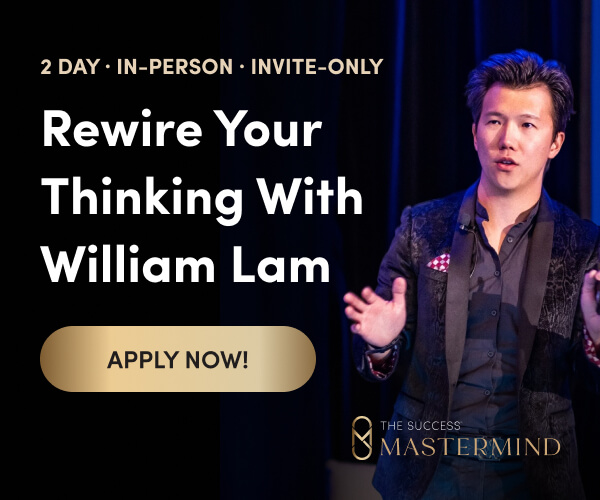At Harvard University’s commencement ceremony this year, humanist chaplain Greg Epstein gave a blessing that was not religious in nature.
“Take a deep breath, not because you earned it,” said Epstein. “You never have to earn breath. You deserve it because you are human.”
Epstein’s book, Tech Agnostic: How Technology Became the World’s Most Powerful Religion, and Why It Desperately Needs a Reformation (MIT Press, October 2024) delivers a powerful argument for our collective indulgence in this faith.
The (civil) religion of technology
Technology is not the first secular institution that has been labeled as religious practice with all of the rites and rituals thereof. In 1967, religious scholar Robert N. Bellah coined the term “American civil religion” in an article where he noted that, “there actually exists alongside of and rather clearly differentiated from the churches an elaborate and well-institutionalized civil religion in America.”
When I tried to argue a case for the existence of a “Civil Religion of Silicon Valley” in graduate school, I looked for a book like Epstein’s for my research. Turns out, he was still working on it, and it came out two years too late for me to cite in my paper. Epstein’s book has been years in the making. His exploration of the topic goes back 20 years, and he conducted over 100 interviews on the topic.
“It begins the year that I arrived at Harvard as a new young humanist chaplain and also a graduate student at Harvard Divinity School,” says Epstein. “And it’s the same year that Mark Zuckerberg is decamping from Harvard for Silicon Valley to run Facebook full time and grow it into the behemoth that it has become.”

Epstein realized that tech had become a world religion at the same time that he was contemplating a way to create a global community that was secular in nature.
“I realized, like, wow, that’s already been done,” says Epstein. “I started thinking about the mission and the vision of organizations like Facebook, now Meta. And realizing that not only had that phenomenon kind of not only outcompeted my congregational project, but it was outcompeting religion as a whole.”
The inverse of religious practice by robots
Anna Puzio, Ph.D., is a faculty member in the departments of Behavioural, Management and Social Sciences and Philosophy at the University of Twente. Her research focuses on the anthropology and ethics of technology, and one of her scholarly interests is religious practices by robots.
Puzio says there are about 20 religious robots worldwide, and their practice is more prevalent in non-monotheistic religions. They are different from social robots, who are designed for social interactions (although you can add religious functions to some social robots, like the Pepper robot, which is often used to support Buddhist funerals in Japan). But there are few scholars who focus on the practice of religion by robots.
“All the literature we have on religious robots is very speculative, like thinking about robot souls,” says Puzio. “I wanted to talk to people and ask them whether they want to have religious robots. First, explain what they are, whether they want them and what ethical criteria should be there.”
Puzio recalls bringing a robot out for her participants and the way that people found it entertaining and cute.
“There was also a child in this workshop, and the child really liked the idea that a robot could be part of their religious education,” says Puzio. “The child had the idea that the robot can show children how to kneel down or to pray because a robot can also be very funny and entertaining.”
The religious practices of tech workers
That’s debatable, but there are certainly aspects of the way that we interact with our technology that mirror religious practice and rituals. A 2023 study by Reviews.org reported that Americans check their phones 144 times per day.
In her 2022 book, Work Pray Code: When Work Becomes Religion in Silicon Valley, UC Berkeley sociologist Carolyn Chen, Ph.D., argues that the act of working itself has become a religion in Silicon Valley.
There is definitely a culture of working yourself to death to flex your creativity and dedication to developing your product. Elon Musk has bragged about sleeping on the floor at Tesla and has been reported to have told Twitter staff to sleep in the office, going so far as to install bedrooms in the company’s San Francisco headquarters.
It is often said that Google’s offices encourage innovation by connecting work and play, but there may be more to it than that. When my dad worked at Google, my mother used to smile wryly and say, “They make the office a fun place to be so that you’ll stay there longer.”
Google itself has its own ceremonies and doctrines, from their motto of “don’t be evil” to the Noogler hats they send to their recently onboarded staff as a sort of baptism, or perhaps, ordination.
The chosen people of technology
When we think about the rituals and practices of tech workers, we also have to think about the support system, which includes the people who deliver food to the offices and the invisible “ghost workers” who train the generative AI that we love so much. Religion often assumes a sense of “chosenness” or a “chosen people,” which can also apply to big tech.
Epstein is a rabbi, which is often surprising to people given that he is a proclaimed atheist or agnostic.
“I’m ordained as a rabbi in a denomination of Judaism called humanistic Judaism that sets forth from the start that the notion of chosenness is a kind of human invention,” says Epstein. “In my work as a chaplain at Harvard and MIT, I’ve seen not only a lot of students, but a whole academic culture built around the idea that there is a kind of chosenness to being the sort of gifted and talented students who end up at a place like Harvard or MIT.”
Perhaps Bellah, who referred to America as a “city on a hill” would have argued today Silicon Valley is this city. And often, even when we extol the meritocracy of college dropouts like Mark Zuckerberg starting businesses like Facebook, it’s important to note that even though Zuckerberg dropped out of Harvard, he still enjoyed the privileges that come from having been there, even briefly.
Reforming the religion of technology
Epstein’s ideas for a reform of the religion of technology are to create a sort of tech agnosticism, as his book is aptly titled. Applying the practice of humanism to technology can help us move away from worshiping technology and toward genuine innovations to improve human existence. And he made a point to shout out to scholars like Meredith Broussard and Ruha Benjamin, who are working to both challenge technology and make it more equitable.
“There are so many people in the world who are doing a kind of tech agnosticism and tech humanism,” Epstein says. “The book is sort of centered in many cases on the stories of people from marginalized backgrounds who are leading the way to what I hope will be a better technological future.”
Photo by shurkin_son/Courtesy of Shutterstock










